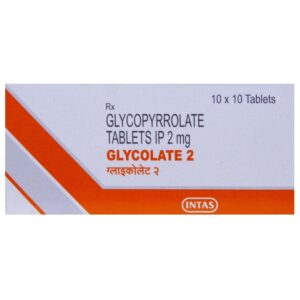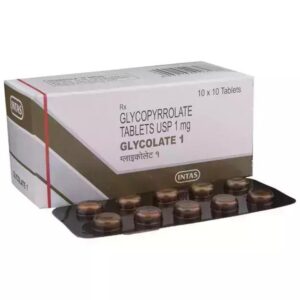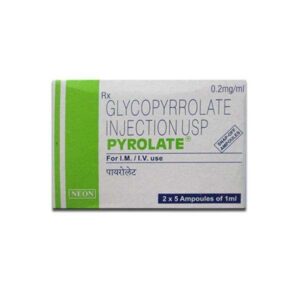GLYCOPYRROLATE
GLYCOPYRROLATE: Drug: Glycopyrrolate
Use: Glycopyrrolate is a medication used to treat excessive drooling caused by certain medical conditions (e.g., cerebral palsy, Parkinson’s disease). It can also be used to reduce respiratory secretions during surgery or anesthesias and as an adjunct treatment for peptic ulcers.
Mechanism of Action: Glycopyrrolate belongs to a class of drugs known as anticholinergics. It works by blocking the action of acetylcholine, a chemical that transmits signals between nerves in the body. By inhibiting the effects of acetylcholine, glycopyrrolate reduces the activity of some glands (such as salivary and sweat glands), which decreases the production of saliva and other bodily secretions.
Dose: The dosage of glycopyrrolate varies depending on the condition being treated. For drooling, the usual starting dose is 0.02 mg/kg (up to a maximum of 0.5 mg) administered three times daily. The dose can be adjusted based on the patient’s response and tolerability. For other indications, the dosage may vary, and it is important to follow the instructions provided by the healthcare professional.
Side Effects: Like any medication, Glycopyrrolate can cause side effects. Common side effects include dry mouth, constipation, blurred vision, drowsiness, dizziness, and difficulty urinating. These side effects are usually mild and transient. Rare but serious side effects may include an allergic reaction, rapid heartbeat, difficulty breathing, and severe constipation. It is important to consult a healthcare professional if any side effects are experienced or if there are concerns.




